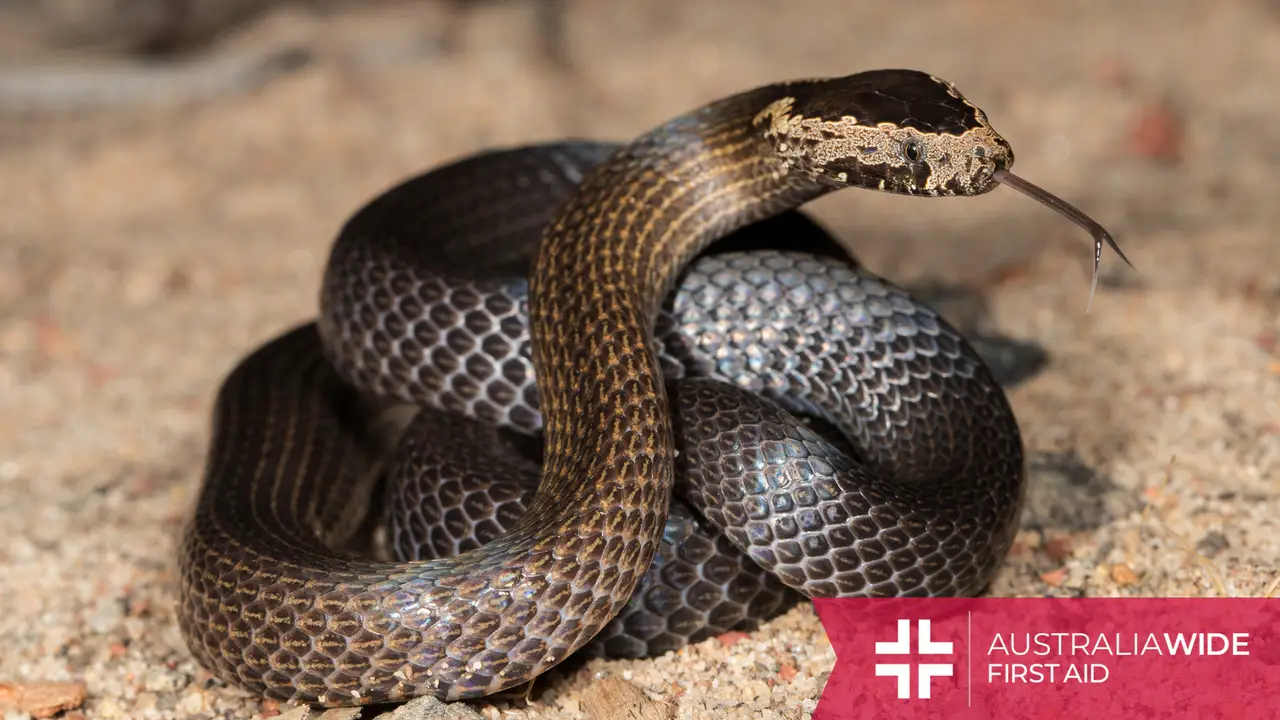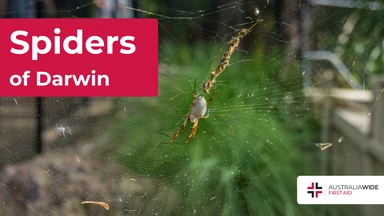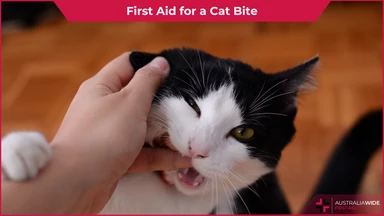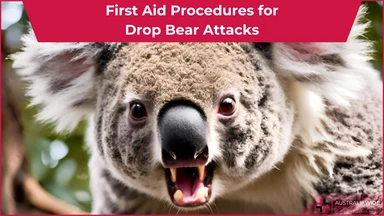The Secretive Golden Crowned Snake


With its crown of yellowish scales, the Golden crowned snake (Cacophis squamulosus) is a sight to behold.
And their nocturnal and highly secretive nature only adds to their appeal.
Join us as we unravel the mystery of the Golden crowned snake, including what to expect if you are bitten by one.
For hands-on experience with snake bites, enrol in one of our general or childcare first aid courses. We have training locations in every state, capital city, and major town throughout Australia - head to our website to find a course near you today.
The Golden crowned snake can be found along the east coast of Australia, from central New South Wales to south-eastern Queensland.
In the south, it prefers sandstone areas, while in the north it has a predilection for deep forests and other areas where good, lush ground cover prevails.
It typically shelters beneath leaf litter, rocks, and logs.
The Golden crowned snake is nocturnal and feeds at night, predominantly on lizards, frogs, and blind snakes.
The Golden crowned snake is not considered dangerous to humans, as they are nocturnal, weakly venomous, and, like most crowned snakes, they prefer to 'mock strike' with their mouth closed.
In saying that, they will bite if highly provoked, in which case you should apply correct first aid and seek medical attention.
Regardless of whether it is from a Red bellied black snake or a Carpet python, all snake bites should be treated as venomous until proven otherwise by a doctor at a hospital.
It is important to remember, snakes will never go out of their way to attack you. As such, the best way to avoid a snake bite is to refrain from approaching, capturing, or killing snakes at home or in the wild.
If you need a snake relocated from your property, contact a professional snake catcher, instead.
And to learn more about identifying and treating snake bites, enrol in a general or childcare first aid course near you - we have training locations in every state, capital city, and major town throughout Australia.

March 11, 2025
Darwin, the tropical capital of Australia’s Northern Territory, is home to a rich diversity of wildlife - including an impressive array of spiders. From the sprawling webs of golden orb-weavers to the cryptic camouflage of trapdoor spiders, these arachnids play a vital role in the local ecosystem. While some may inspire fear, the majority are harmless and even beneficial, helping to control insect populations.

September 4, 2024
Cat bites, while often underestimated, can lead to serious health complications if not treated promptly and properly. Cats' mouths harbour a variety of bacteria that can cause infections in humans.

April 1, 2024
Encounters with wildlife can often be thrilling, but when it comes to the creature known as the drop bear, the experience can quickly turn dangerous. A sharp increase in recent attacks prompts the need for understanding proper first aid procedures in case of an attack.